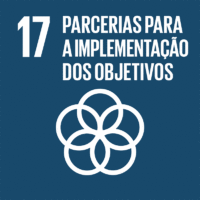Ciência_Iscte
Publicações
Descrição Detalhada da Publicação
Título Revista
International Journal of Business and Systems Research
Ano (publicação definitiva)
2018
Língua
Inglês
País
Suíça
Mais Informação
Web of Science®
Scopus
Google Scholar
Esta publicação não está indexada no Overton
Abstract/Resumo
Real life is a bigger game in which what a player does early on can affect what others choose to do later on. In particular we can strive to explain how cooperative behaviour can be established as a result of rational behaviour. When engaged in a repeated situation, players must consider not only their short-term gains but also their long-term payoffs. The general idea of repeated games is that players may be able to deter another player from exploiting his short-term advantage by threatening a punishment that reduces his long-term payoff. The aim of the paper that supports this abstract is to present and discuss dynamic game theory. There are three basic kinds of reasons, which are not mutually exclusive, to study what happens in repeated games. First, it provides a pleasant and a very interesting theory and it has the advantage of making us become more humble in our predictions. Second, many of the most interesting economic interactions repeated often can incorporate phenomena which we believe are important but which are not captured when we restrict our attention to static games. Finally, economics, and equilibrium based theories more generally, do best when analysing routinized interactions.
Agradecimentos/Acknowledgements
--
Palavras-chave
Dynamic games,Code form game,Repeated game
Classificação Fields of Science and Technology
- Matemáticas - Ciências Naturais
- Economia e Gestão - Ciências Sociais
Registos de financiamentos
| Referência de financiamento | Entidade Financiadora |
|---|---|
| UID/GES/00315/2013 | Fundação para a Ciência e a Tecnologia |
| UID/MULTI/0446/2013 | Fundação para a Ciência e a Tecnologia |
Contribuições para os Objetivos do Desenvolvimento Sustentável das Nações Unidas
Com o objetivo de aumentar a investigação direcionada para o cumprimento dos Objetivos do Desenvolvimento Sustentável para 2030 das Nações Unidas, é disponibilizada no Ciência_Iscte a possibilidade de associação, quando aplicável, dos artigos científicos aos Objetivos do Desenvolvimento Sustentável. Estes são os Objetivos do Desenvolvimento Sustentável identificados pelo(s) autor(es) para esta publicação. Para uma informação detalhada dos Objetivos do Desenvolvimento Sustentável, clique aqui.

 English
English


